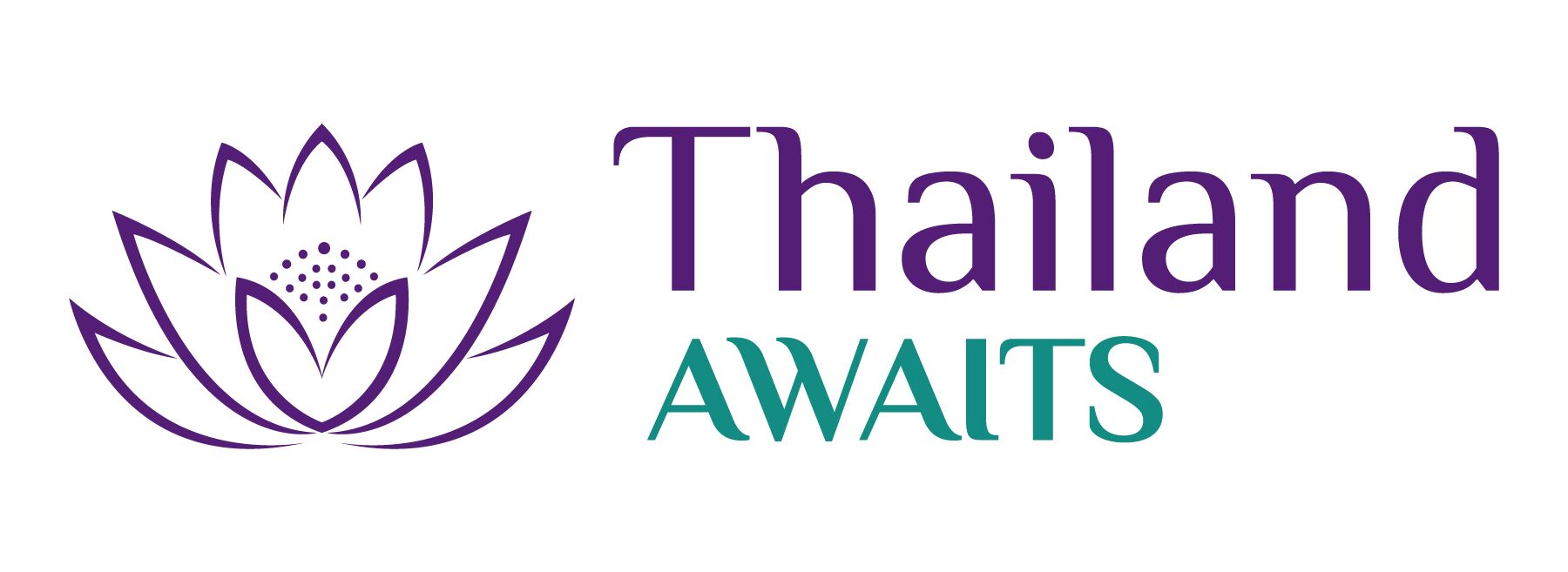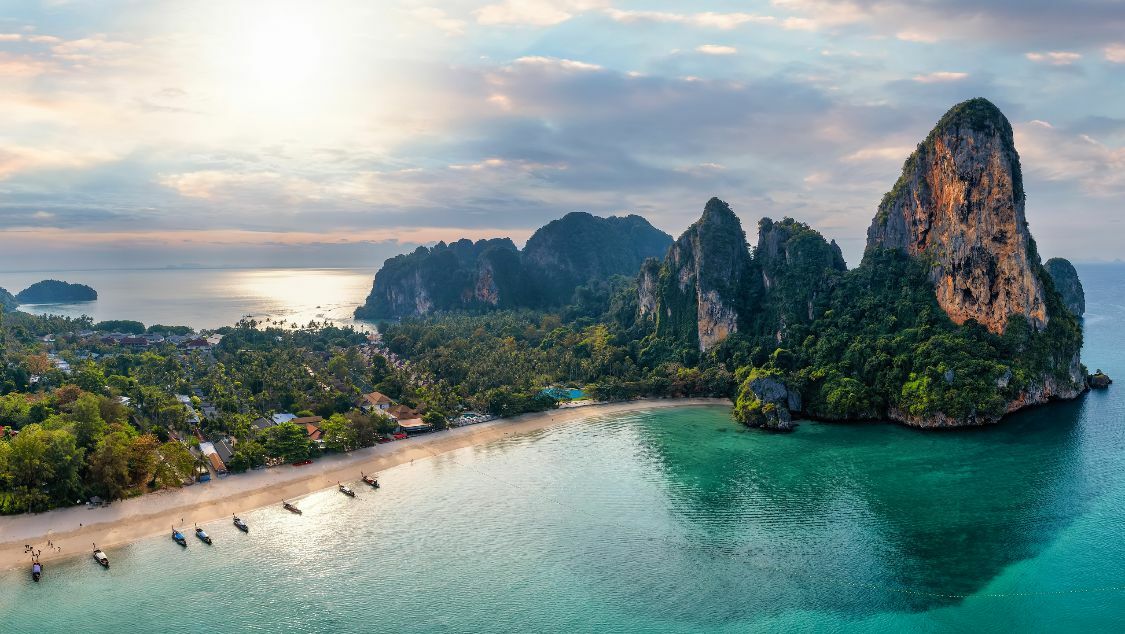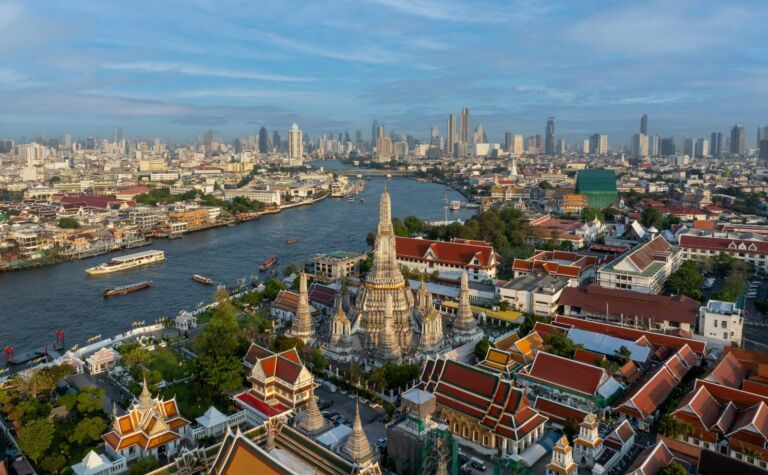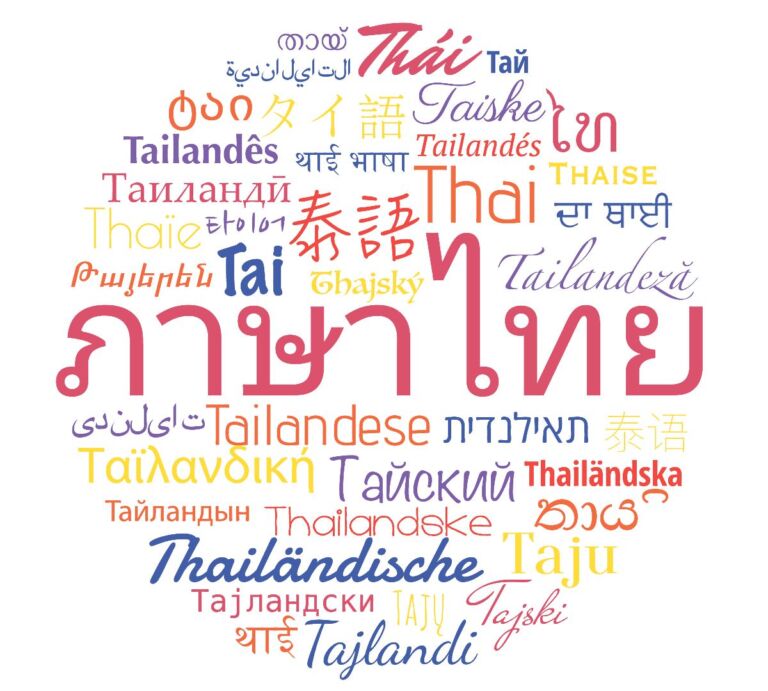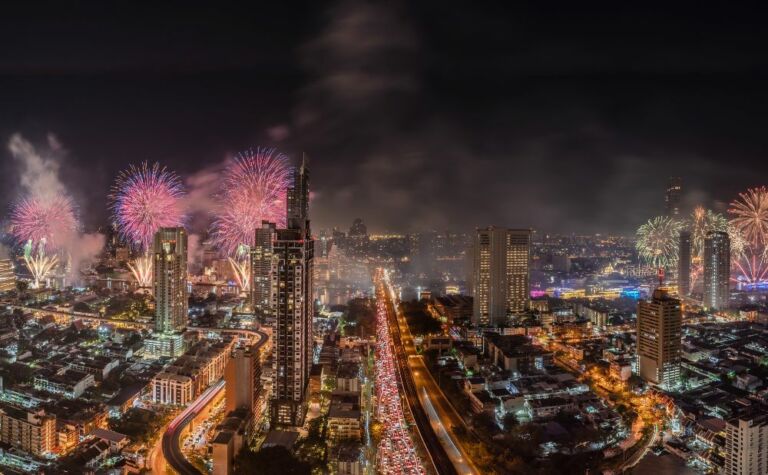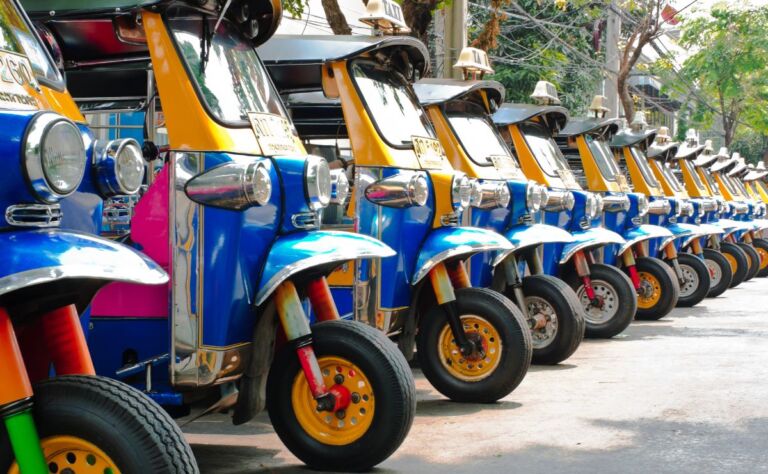Essential Tips for Booking Flights, Hotels, & Tours, for Your Thailand Trip
Paula and I are forever being asked questions about how to plan a Thailand trip. Things like when to book flights, trains, tours, etc. We also hear a lot of misinformation that people have learned online or from less reputable travel agents*.
As a former travel agent myself, I know some stories my less reputable colleagues would tell people to get them to book. So, I thought I’d clear up all the misinformation once and for all.
*Note, we are not bagging all travel agents, some are excellent and a good travel agent is worth their weight in gold.
This page contains affiliate links. Please see our disclosure policy for more details.
Here is a selection of some of the most frequently asked questions about booking travel to Thailand.
What Do All the Seasons Mean, and When Do They Apply?
This is one of the many questions I hear that has been answered incorrectly. As far as the airlines are concerned, there are three travel booking seasons: low, shoulder, and high. And they have nothing to do with your destination.
These travel seasons are determined in the departure country and are based on when people are most likely to travel. Here’s the truth behind the three ‘seasons.’ I’m going to use Australia as my example as the departure country.
Technically, the seasons in Australia and Thailand occasionally match up, but that’s just luck, not by design.
High Season
High season, according to the airlines, is the peak period when people choose to travel. And you shouldn’t be surprised to find out that this is the Christmas/New Year period.
In fact, it closely follows the Australian school summer holiday schedule, so it’s around six weeks from the middle of December until the end of January. More people travel at this time than any other time of the year, mostly because they don’t really have a choice, especially families with kids at school.
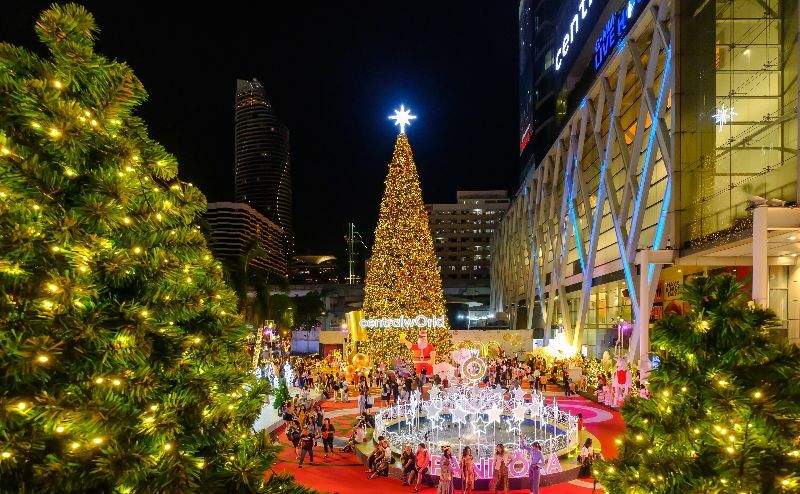
High season is the most expensive time to travel, and I’ve seen fares double the price of low season. Yes, it’s unfair, but that’s the travel business.
Coincidentally, high season in Australia is the same as the high season in Thailand; more people visit Thailand in December/January than at any other time of the year, and prices for accommodation and tours are more expensive here, too.
Note: High season flights from the USA are also timed to their school holidays, making July and August more expensive for North American-based visitors.
Shoulder Season
This is the one that gets the most confusing for travellers, and it needn’t be. Once again it’s determined by the school holidays, as you guessed it, it’s the second busiest travel time of the year.
Shoulder seasons change every year as the school holidays do, but they’re mostly for two weeks in April, June, and September. If Easter falls just before or after the April school holidays, that ‘season’ is extended to capture both.
Songkran holiday (Thai New Year) is from the 13–16 April every year. Prices rise to match demand and things can get booked out quickly. This often matches up with shoulder season in Australia, again, just a coincidence.
Low Season
Low season is the rest of the year and includes most of the rainy season. This is when the airfares are the cheapest, discount fares are offered, and plans are often not filled to capacity.
If you have the luxury of choosing when to travel, low season is for you.
Low season in Thailand is usually the period between Songkran (April) and Loy Kratong (November); it’s a great time to visit as there are fewer crowds and things are more affordable. If you can benefit from Australia’s low-season pricing, it’s a double win for you.
How Far in Advance Should I Book My International Flight?
This is a legitimate question and my standard answer is always as soon as you can.
There are a number of reasons for this. If you’re travelling during the Australian high season, flights are fully booked. To avoid missing out, get in early. There are rarely if ever, ‘sale prices’ during high season, as why should they, they’ll sell out, anyway.
Many airlines only release seats 10 months in advance, so if your plans are a year away, you have a couple of months up your sleeve.
If you’re travelling in low season, buying well in advance is also advisable, as if there are ‘sale fares’ available, they’re often released first.
As the travel date approaches, the prices get higher, unless the flight is seriously low-booked, there might be sales offered, but I haven’t seen this for years.
When to Book Domestic Flights, Hotels and Tours in Thailand
Okay, this one is a little more complicated, and it comes down to the local seasons: summer, rainy, and winter.
Local Transport (Domestic Flights, Trains etc)
Winter in Thailand (December to February) corresponds with the peak travel season, and many things are booked out.
If you’re travelling during this period, and you know your plans are unlikely to change, book these as soon as possible. This is a must for domestic flights and night trains as they have limited availability and do sell out.
Local Tours
If you travel outside the winter peak time of the year and can be flexible, booking your tours when you’re here can a smart move.
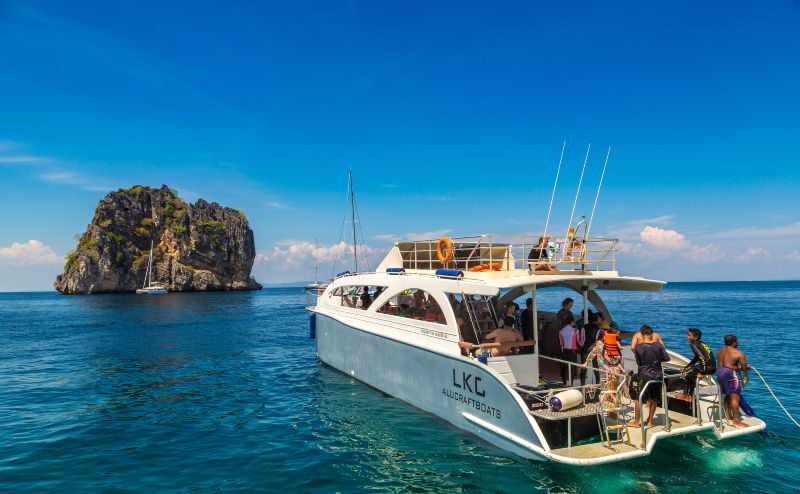
The only challenge with this is that some tours, for example, run less often, or if they don’t have minimum numbers of passengers, may not operate on the day you want to go. If there is something your heart is set on, book it in advance, but if you are staying in one place for a while, then perhaps leave it until you arrive.
Accommodation
As for hotels, resorts or holiday condos, you should certainly book well in advance during peak season, but it’s less necessary in other seasons.
Making a refundable booking on a website like Booking.com or Agoda gives you peace of mind that you have a place to stay but the flexibility to change your mind if a better deal comes along.
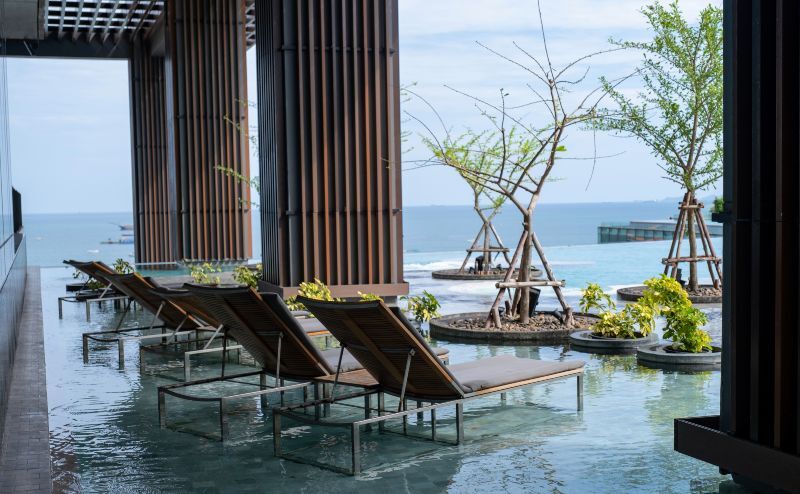
If you are travelling with kids or in a group, booking your hotel is always the best option as it will give you the biggest range of properties to choose from.
In the past, I used to book my first one or two nights only, so I had somewhere to stay as soon as I arrived. After that, I had the luxury of visiting some hotels to see if they were what I’d prefer. If you are on a long visit, this is a good plan, but if you only have a week or two then looking at hotels is probably not how you want to spend your time.
Often, especially in the rainy season (the low travel season), walk-in rates are really cheap. Hotel General Managers usually make their bonuses based on the capacity of rooms booked, not revenue. If the hotel has loads of rooms left, you can get quite a discount on that nightly rate.
Should I Book With a Travel Agent?
Okay, I’m going to get yelled at by my former colleagues for this, but the truth to this question is probably not, or at least not always.
Let me explain. In the past, airlines used to offer travel agents commissions for selling their flights. And it was fair, as the customer never paid more than the advertised price; the airlines wore the commission.
As years passed, airlines cut these, and now, except for a few, they don’t pay them anymore. So for a travel agent to make money, they need to charge their clients a ‘service fee.’ If you’re buying a return ticket, for example, from Sydney to Bangkok on Qantas or Thai Airways, why would you want to pay a fee when you can buy it yourself online directly from the airline? You wouldn’t.
However, there are times when booking with a travel agent is advisable:
Complicated Itineraries
If you’re flying into one airport and out of another and travelling to multiple locations in Thailand, doing this on your own may get challenging. A travel agent is experienced enough to make this type of booking appear effortless and may end up saving you money.
Changing or Cancelling After Departure
Changing your flights once you arrive in Thailand can be a headache. Time on hold and language barriers can be frustrating. If you’ve booked with a travel agent back in Australia, make use of the ‘service’ fee you’ve paid and get them to make the changes for you.
Ok, so now it’s time to burst a few travel myths that I continue to hear:
Buying the Cheapest Fare Guarantees Me the Worst Seat on the Flight
I love this one. I don’t even know how it started, but I’ve had people insist that if they book a sale fare, they’re guaranteed to end up next to the toilet. This isn’t the case unless you’re very unlucky. Let me explain how airlines allocate seats.
Seating requests are the bane of every travel agent. Let me set the record straight here: the key is in the title. It’s a seat ‘request,’ which doesn’t mean it’s guaranteed, it just means it’s been requested. I’ve had customers call me from their seat on the plane, screaming at me because the airline didn’t give them the seat they requested or moved them. And the airline has every right to do that.
Consider this: Children under 12 shouldn’t be seated away from their parents or guardians. Why? You never know the type of person they may be seated next to. To avoid a scary situation, an airline check-in person will do whatever they can to keep a family together, even if that means shuffling passengers around.
It’s happened to me. I’ve been sitting in my allocated seat, and a last-minute family of three checks in. I had two seats free next to me, so they moved me to another seat so the family could sit together. I was fortunate that, as I didn’t make a fuss or have a meltdown like many of my clients would, the airline bumped me up to premium economy. Now, this won’t always happen, but it might.
These days, many airlines allow you to pay for a specific seat, do this and you’ll get that seat. If you choose not to pay for your seat and wait until check-in on the day, regardless of whether you paid full price, or a discounted price, yes, you may end up by the toilet.
If you bought a sale fare, and choosing a seat is important to you, and you have the option to pay for a specific seat, do it.
I Can Buy a one-Way Ticket to Thailand & Wing it Once I’m There
Ok, so this is pretty serious. You absolutely cannot do this. Here’s why.
Everyone who travels to Thailand needs a visa. For many countries (including Australia, NZ, the USA and Canada), a visa is given on arrival for a maximum stay of 30 days. For this visa to be granted, you must show legitimate proof that you’re leaving Thailand within those 30 days.
Thailand offers a 60 day visa on arrival for citizens of 93 countries and territories
If you buy a one-way ticket (a travel agent will never sell it to you), you’ll either be denied boarding onto the plane—if the check-in agent does their job correctly—or worse, be denied entry into Thailand and forced to return home on the next available flight, at your own expense.
There are two ways to go about it if you’re not planning to go straight home after visiting Thailand:
Buy a Changeable Ticket
To show that you’re leaving Thailand in 30 days, have a return ticket with those dates showing. Once you’re in Thailand, you can ask your travel agent to change the date to a later one in the year. Make sure you go about extending your visa correctly before doing that.
Proof of Onward Travel
The other way is to show that you have legitimate (paid-for) plans to leave Thailand. This may be a one-way ticket to another Southeast Asian country, for example. You may also be asked to show proof of funds for your stay, which is around 10,000 baht (just over $400).
Start planning your Thailand Trip
We hope this has cleared up some of your questions, however if you have more please head over to our Facebook Group, Thailand Obsessed for advice.
Ready to start planning your Thailand trip? Our Facebook community Thailand Awaits is here to help. Join fellow travellers, get your questions answered by Thailand experts, and access free planning resources.
